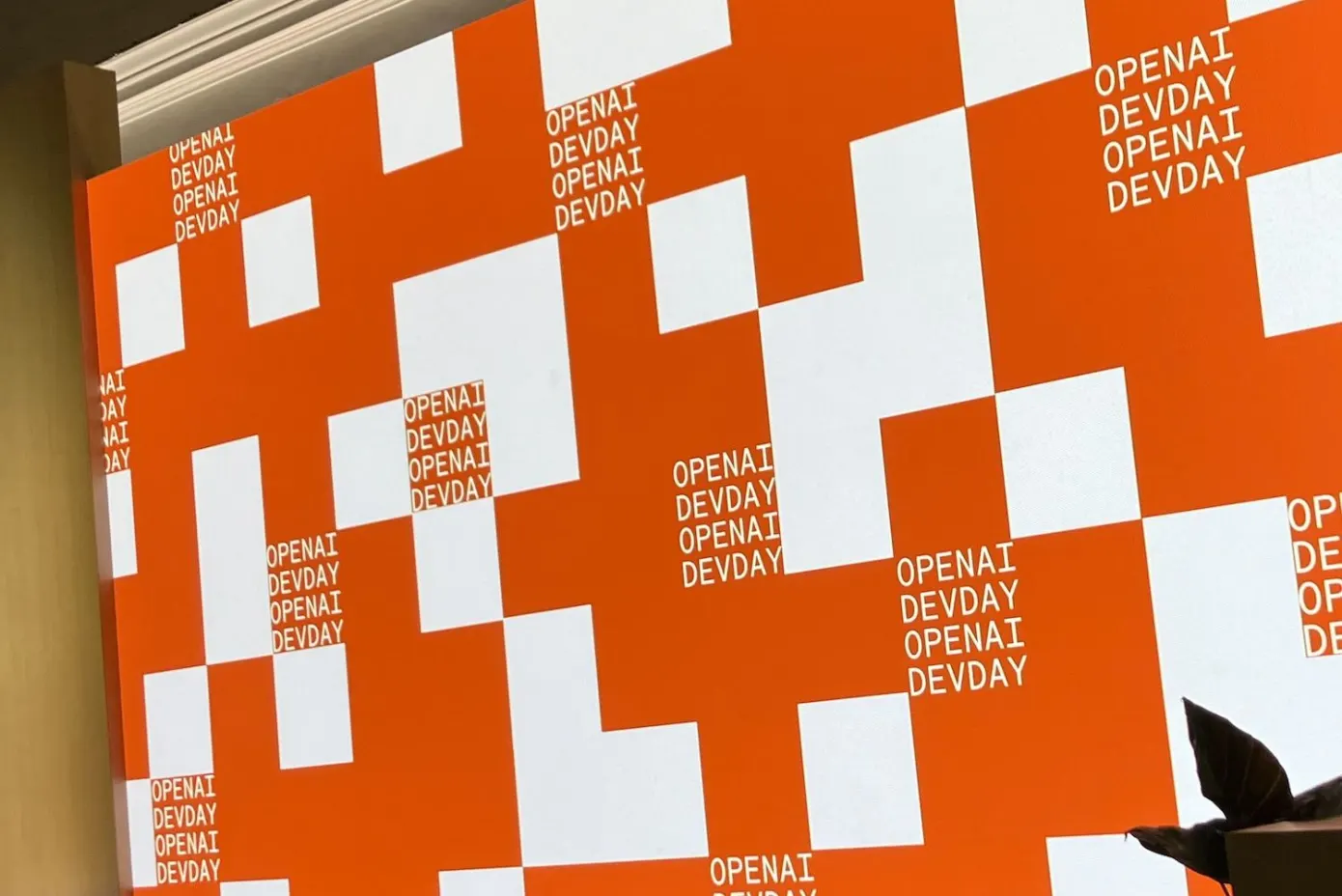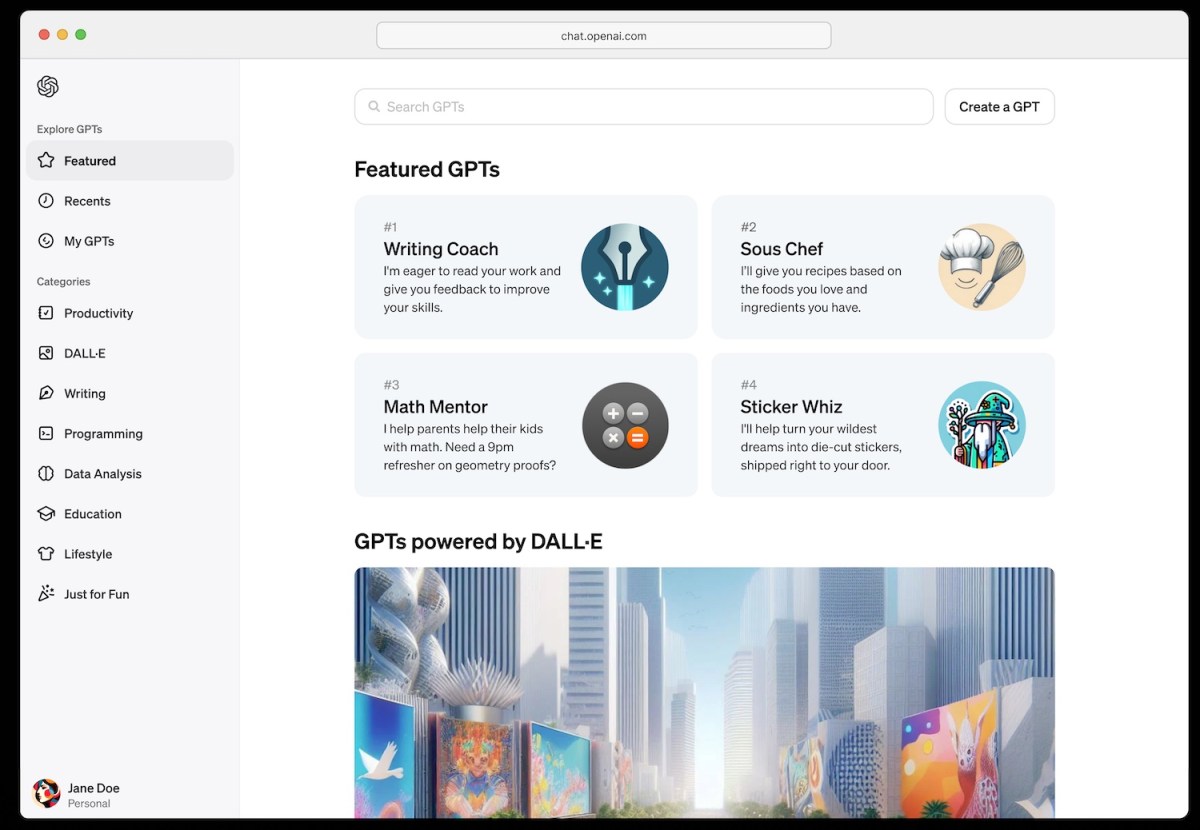
OpenAI has just unleashed a game-changing feature for all the creative minds out there: GPTs, a customizable version of ChatGPT tailored for specific purposes. This revolutionary announcement was made at OpenAI’s first developer day in San Francisco. Imagine having the power to craft your own AI, effortlessly and without any coding experience. Whether it’s for fun, productivity, or serious development, the possibilities are boundless.
With GPTs, you can create specialized AIs that cater to your unique needs. You could have a GPT trained on your favorite recipes, enabling you to quickly retrieve ingredient lists for that perfect soup. Or perhaps you’re a fantasy enthusiast who wants an AI companion to delve into the intricate world of characters and plots. For developers and companies, GPTs can even be trained on proprietary code, allowing quick style checks and harmonious code generation.
Creating a GPT is as simple as having a conversation. You can literally talk to ChatGPT, describing what you want, and it adapts to your requirements. OpenAI’s founder and CEO, Sam Altman, demonstrated this live on stage. He crafted a bot to advise startup founders by uploading a lecture, refining it to be concise and constructive. The process was intuitive and empowering, giving users full control over their AI creations.
But the excitement doesn’t stop there. OpenAI is introducing the GPT Store, a platform where these customized AIs will be showcased, distributed, and potentially monetized. Similar to the App Store model, this marketplace will feature creations by verified builders, allowing GPTs to climb leaderboards and gain recognition. OpenAI plans to reward creators with a share of the revenue, a move reminiscent of the successful app store model pioneered by Apple.

While OpenAI’s ambitions are high, there are challenges ahead. The decision to establish itself as an independent platform might put it in direct competition with industry giants like Apple and Microsoft. Apple, in particular, might have concerns about the monetization of GPT models without their involvement through the App Store. Additionally, Microsoft is gearing up to launch its own specialized models, potentially leading to intense competition in the market.
The future of AI development and distribution is evolving rapidly, and OpenAI’s innovative approach is poised to reshape the landscape. As details about the GPT Store continue to unfold, the coming years promise to be incredibly intriguing, with endless possibilities on the horizon. Stay tuned for more updates as OpenAI continues to pave the way for a new era of AI customization and creativity.
In this dynamic landscape of AI innovation, OpenAI’s venture into personalized AI models through GPTs opens up a world of opportunities for developers, businesses, and enthusiasts alike. As the GPT Store prepares to launch, the excitement and anticipation among the tech community are palpable.
OpenAI’s decision to empower individuals and organizations to create their own AI solutions signifies a paradigm shift in the way we approach artificial intelligence. By enabling easy customization and widespread accessibility, OpenAI is democratizing AI development, allowing diverse voices and ideas to flourish.
The prospect of earning revenue based on the usage of one’s GPT adds an entrepreneurial edge to the equation. Creators are not only encouraged to innovate but also stand to benefit from the utility and popularity of their creations. This model incentivizes the development of high-quality, user-friendly GPTs, fostering a competitive yet collaborative ecosystem.

However, challenges lie ahead. Competition with industry giants and potential conflicts with existing distribution methods require OpenAI to navigate carefully. As the GPT Store becomes a hub for AI enthusiasts, ensuring the authenticity and reliability of the featured models will be paramount. The verification process for builders is crucial to maintain the store’s credibility and prevent the influx of low-quality or fraudulent AIs.
Moreover, the evolving nature of OpenAI’s strategy, from revenue sharing to possible subscription models, demonstrates a willingness to adapt and respond to user needs and market demands. This flexibility positions OpenAI as a responsive and customer-focused player in the AI arena.
The partnership with Microsoft adds another layer of intrigue to this unfolding story. While Microsoft’s support is evident, OpenAI’s innovative strides might lead to a divergence in their trajectories. The balance between collaboration and competition will be key to preserving the harmony between these tech giants.
In the coming months and years, the tech world will keenly observe the developments surrounding OpenAI’s GPT Store. How creators embrace this platform, the diversity of applications that emerge, and the impact on the broader AI landscape will shape the future of artificial intelligence. As this exciting journey continues, one thing is certain: the fusion of creativity, accessibility, and technology heralds a new era for AI, where innovation knows no bounds. Stay tuned for the unfolding saga of OpenAI and the GPT Store—a revolution in the making.





